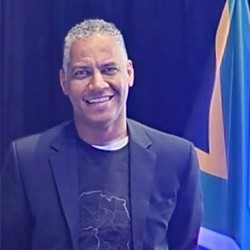International IDEA Organized the First Electoral Reforms Advocacy Round Table in Sudan’s Northern State

International IDEA in collaboration with the Regional Center for Development of Civil Society (RCDCS) and Y-Peer Youth Education Network organized the first round table meeting on electoral reform advocacy with civil society organizations (CSOs) in Dongola, in Sudan’s Northern State. International IDEA held the meeting as part of the elections component of a programme entitled “Supporting Sudan’s Democratic Transition”, a programme funded by the European Union and the Swedish International Development Agency (Sida). The programme aims to provide technical support to the transitional government of Sudan and national CSOs in their pursuit to establish credible democratic processes and institutions.
The overall objective of the round table meeting was to support the democratic transformation in Sudan by providing a friendly and favorable platform for governmental and non-governmental stakeholders to meet, discuss and exchange experiences to come up with a roadmap to present legislative proposals for reforming the election law for the years 2008 and 2018 by developing principles and provisions that help in conducting free and fair elections, under the supervision of an independent body, in a pluralistic democratic space.
The following topics were discussed during the meeting:
- Introducing the project and its objectives;
- Presentation of the analysis of the election law prepared by International IDEA;
- Standing on the reform proposals from the region’s point of view;
- Introducing the advocacy campaign and involving the participants in its adoption;
- The legal framework for the electoral process and international standards;
- The concept of electoral reform;
- Identifying key areas in the electoral process;
- Transitional arrangements and democratic governance;
- Key areas identified in the electoral process;
- Understanding democratic principles and good governance;
- Active participation between CSOs, the government and other stakeholders in the electoral reform process; and
- Determine and map the external environment for electoral law reform.
The meeting witnessed high participation from political activists, CSOs, media and representatives from the government of the Northern State. During the meeting, a range of ideas and concepts of electoral reform advocacy were discussed with acknowledgeable participation from the attendees.
The expected outcomes of the round table meeting on electoral reform are:
- Capacity building for 25-30 stakeholder policymakers, lawyers, community leaders, politicians, youth, women and partner CSOs;
- Enhancing civil society knowledge and skills on electoral reform;
- Enhancing the ability of stakeholders to identify proposals for electoral law reform; and
- Enhancing citizens' knowledge of the transition and democratic governance.
The governor the Northern State, Prof. Amal Ezeldin, attended the final day of the meeting. During her speech, she stressed the important role played by civil society in the transitional period and extended the state government support to the work of International IDEA in Sudan. At the end, the participants received certificates of participation.
Similar round table meetings will be held in all six regions of Sudan; Darfur, Kordofan, Eastern region, Southern region of Sudan and Khartoum.




